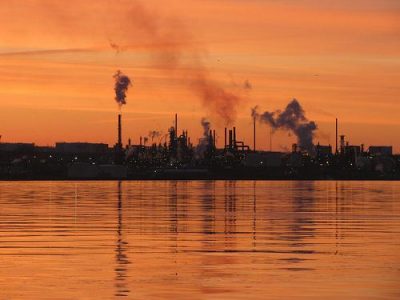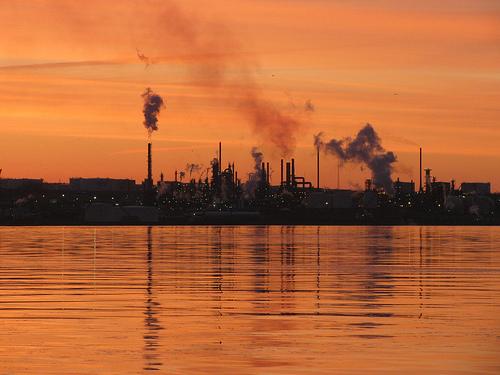Janet Redman, co-director of the Sustainable Energy & Economy Network at the Institute for Policy Studies, is observing the United Nations climate talks in Durban, South Africa.
Before condemning the UN climate convention, which is still the most democratic space to hold negotiations about our planet’s future, it’s helpful to borrow a tool from the Occupy movement: an analysis of the 1 percent and the 99 percent.

Carbon emissions are likely to stay the same without the cooperation of powerful actors in the UN Climate Change Summit. Photo by Glenn Euloth.
Mic check!
The 1 percent in this struggle can be checked off in order of culpability:
- Elite individuals and ideologues who’ve used their wealth to build the media empires that shape public opinion and to buy political influence. This includes billionaire climate denying spin-doctors like the media mogul Rupert Murdoch, and David and Charles Koch, the oil tycoon brothers who finance the ultra-conservative and astroturf tea party “movement.”
- The polluting corporations like BP, Cargill, and Monsanto, and obstructionist trade associations like the U.S. Chamber of Commerce, which is challenging the EPA’s ability to regulate greenhouse gases.
- The politicians and officials these corporations, wealthy people, and lobbyists buy. There are too many to name, but here are a few recently purchased by the coal industry: Representatives Eric Cantor (R-VA), Michele Bachmann (R-MN), and Jim Matheson (D-UT).
- The governments and institutions that represent their interests. At the top of the list in the climate negotiations are the United States and the World Bank.
The 99 percent are the millions starving in the Horn of Africa, drowning in Bangkok, and forced from their homes in the lower 9th ward of New Orleans. They (we) are the people suffering around the world from a problem they (we) didn’t cause and can’t solve alone.
The heroes in this struggle include anyone who chooses to stand together in solidarity to oppose these injustices — the people on the street, the movements, the voices, such as Pablo Salon from Bolivia, who are willing to speak the truth in the halls of power.
The fight for climate justice is a fight for economic justice in a climate-constrained world. It’s a call for a new economic model of broad-based wealth, local democratic control and new measures of well-being like climate resiliency.
The climate negotiations are one battleground among others where this struggle is playing out — not the only one or even the main one, but one we ignore at our peril.
Join the global call for climate justice by participating in 1,000 Durbans in conjunction with the December 3rd Day of Action on Climate Justice.
Many thanks to Matthew Stilwell, Institute for Governance & Sustainable Development, for contributing to this commentary.
